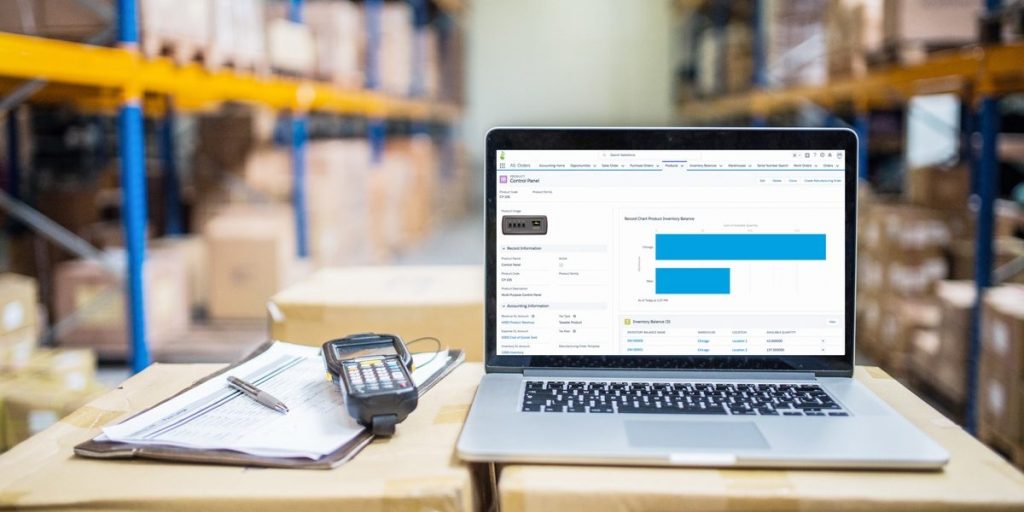Get the Right Manufacturing Accounting System for Your Business
Accounting for manufacturing businesses is complicated as it has a lot to deal with inventory valuation and expenses of goods sold to determine the most appropriate value of the finished items.
General accounting software or spreadsheets cannot address such complicated requirements. Therefore, manufacturers require a dedicated accounting system for manufacturing to help them make sound business choices.

Having the right manufacturing accounting system helps minimize unnecessary expenses by closely monitoring inventory and design optimized costs of finished goods.
Why do manufacturing businesses require an accounting system?
The brief answer is- to increase efficiency!
Without reliable, quality, and timely information, manufacturers will not be able to gain a complete view of the financial health of the business. This is where the accounting system comes in to automate several tedious and repetitive accounting responsibilities, thus increasing the accounting team’s efficiency and productivity.
In addition to keeping finances organized, an accounting system also helps businesses stay compliant with changing regulations and tax laws. Furthermore, modern accounting solutions today, particularly cloud-based options, are secure and extremely user-friendly. Manufacturing businesses can promptly dive into using the software right after deployment.
Key features of the accounting system for manufacturing
Manufacturers usually invest in an all-in-one solution, which includes not just a module for financials but also modules for planning, production, administration, and so on. This suite of modules is identified as an enterprise resource planning (ERP) system.
If your firm decided to choose a stand-alone accounting solution, make sure that you choose one that has the skills to integrate well with other systems your plant is currently housing.
The seamless integration allows data to run smoothly from the production belts or merchandise shelves to the back office. Because of that, you always get real-time, accurate data.
There are several options for you to choose from when it comes to accounting systems. Firms now have the versatility to use their enterprise applications on-premise, in the cloud, or choose a hybrid option.
Some solutions include project management, time tracking, and payroll tools for higher-tier accounts or offer as add-ons based on specific business requirements.
Here are some key features that manufacturers should consider when looking for an accounting system for their business.
1. Inventory management
Storing an extreme number of unused inventory can crank up prices. The inventory management module enables manufacturers to optimize their inventory strategies, alerts users when the stock reaches certain levels so they can replenish.
In addition to understanding what the business has in stock, the module also allows users to track inventory and each product life cycle, set targets and levels to prevent over/ under buying materials, and include stock locations/ images for easy identification.
2. Order management
The order management module provides businesses the ability to process and track orders, payment statuses, and invoices using one centralized system.
Integrating order management into the accounting system eliminates the requirement for re-entering data. From processing orders to invoicing, payment, and transaction postings, all occur automatically and are reflected promptly in accounts receivable/ payable and General Ledger.
The automation produces a standardized process from one single platform, freeing manufacturers up to focus on other mission-critical tasks. Manufacturers are also able to gain a better view of the entire fulfillment ecosystems, quickly identify errors or customer dissatisfaction due to incorrect invoices or transportation errors.
3. Asset management
Manufacturers should likewise consider an accounting solution that integrates well with an asset control system or has a module specifically made to maintain assets.
By firmly keeping tabs on all asset life cycles, manufacturers will be able to identify destructive purchases and invest more in pieces of equipment that are beneficial for the workers.
4. Analysis and reporting
An analysis tool assists users to analyze where the money went, how price changes affect product expenses and profits as well as identifying bottlenecks in the manufacturing process, and analyze the causes behind the distinction between the estimated and actual amount.
A sturdy reporting tool can automatically produce reports on-demand, highlight trends, and present insights in an easy-to-understand way so managers can make informed decisions faster.
The software should also allow users to create and customize their reports with ease along with a function to remember last report edits so users can simply duplicate for future usages.
Many accounting solutions have built-in Business Intelligence (BI) capabilities, which supports users to further enhance their analytical ability.
Aspert Innovations Sdn Bhd is a one-stop Business and IT Solution consultancy specializing in complete business resolutions, IT services, automotive manufacturing ERP system (SAP Business One), accounting system for manufacturing, and custom-made solutions.
We are enthusiastic about assisting our clients to grow and improve efficiency by transforming and digitizing businesses. For more information visit our official website- https://aspert.com.my/.

